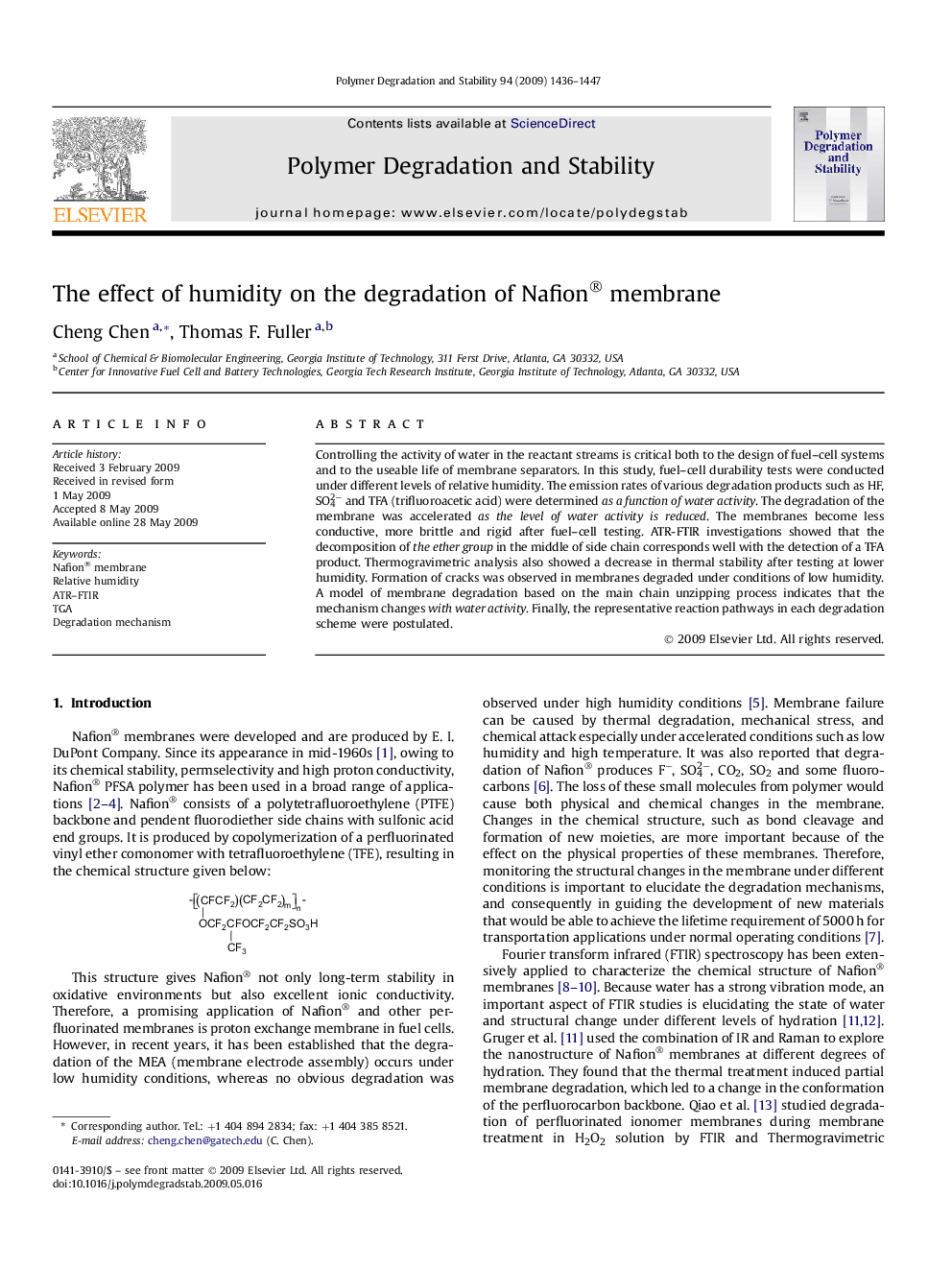| Article ID | Journal | Published Year | Pages | File Type |
|---|---|---|---|---|
| 5203925 | Polymer Degradation and Stability | 2009 | 12 Pages |
Abstract
Controlling the activity of water in the reactant streams is critical both to the design of fuel-cell systems and to the useable life of membrane separators. In this study, fuel-cell durability tests were conducted under different levels of relative humidity. The emission rates of various degradation products such as HF, SO42â and TFA (trifluoroacetic acid) were determined as a function of water activity. The degradation of the membrane was accelerated as the level of water activity is reduced. The membranes become less conductive, more brittle and rigid after fuel-cell testing. ATR-FTIR investigations showed that the decomposition of the ether group in the middle of side chain corresponds well with the detection of a TFA product. Thermogravimetric analysis also showed a decrease in thermal stability after testing at lower humidity. Formation of cracks was observed in membranes degraded under conditions of low humidity. A model of membrane degradation based on the main chain unzipping process indicates that the mechanism changes with water activity. Finally, the representative reaction pathways in each degradation scheme were postulated.
Related Topics
Physical Sciences and Engineering
Chemistry
Organic Chemistry
Authors
Cheng Chen, Thomas F. Fuller,
